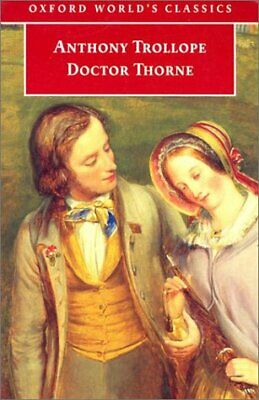Anthony Trollope is one of my favourite writers. He’s best known for two loosely connected series, the Barsetshire novels (written 1855–1867) and the Palliser novels (1864–1879), both concerned, as are all his novels, with marriage, money and status. If anyone’s interested in trying one of his novels, I recommend starting with The Eustace Diamonds, which is in the Palliser series but can certainly be read alone. For a bigger one, try The Way We Live Now. An Autobiography is one of the best by any writer.

I’m a member of the Anthony Trollope Society. Up until the pandemic, all that got me was Trollopiana, the journal, because events were in person in the UK. But the Society has done an excellent job of adapting to the lockdowns and restrictions and is now doing regular events online, including group readings of Trollope’s novels. And you don’t need to be a member of the Society! The events are open to everyone. I think this is helping interest lots of new readers in Trollope: if anyone was ever interested in trying one of these thick Victorian triple-deckers, which assume a lot of knowledge of religion, politics and especially class in Victorian England, listening in to talks and discussions will be a big help.
The current Big Read is Doctor Thorne, which the Society is doing over two months, with four biweekly meetings. The first one was two weeks ago and had a big turnout, including quite a few people who seemed new to Trollope, which was great to see. The next is on Monday and I’m just catching up to chapter twenty-four so I’ll be ready for it.
Earlier this week the Society hosted Julian Fellowes in conversation with Gyles Brandreth. Both are great admirers of Trollope; Fellowes is the president of the Society and adapted Doctor Thorne for TV a few years ago. The chat was an absolute delight. They both wonderful speakers, full of good humour and great insight into Trollope’s novels. They agreed that he is a kind writer, appreciating and understanding all types of people, and Fellowes talked about how all his characters are fully fleshed out—he creates real people even when they’re unlikeable—and that one should be careful not to prejudge anyone in the novels based on initial assumptions or prejudices about how they seem (also a very good lesson in life, of course).
The Society put a recording of the talk on YouTube:
I wish the Anthony Powell Society would do start online events. It’s missing a big opportunity to introduce Powell’s A Dance to the Music of Time to new readers, and to show that Powell has the same approach to his characters, and that the series is not full of insufferable snobs, which it may seem to be at a quick glance.
 Miskatonic University Press
Miskatonic University Press